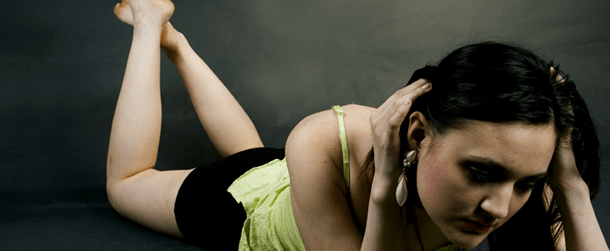
According to the National Institute of Mental Health, approximately 6.7 percent of the population of the United States has major depressive disorder. Depression is a condition that affects women far more than it does men. It also effects people of almost every age and every economic background. Common symptoms of depression include down or depressed mood, problems with concentration, changes in sleeping patterns and changes in eating patterns. These symptoms are present daily for a period of more than two weeks.
Although many doctors will prescribe antidepressants, there are other non-prescription alternatives to antidepressants that are highly effective. In fact, according to a 2001 survey published in the American Journal of Psychiatry, it was found that over 53 percent of people with severe depression use alternative and complimentary medicine to treat their condition. People turn to alternative therapies for a variety of reasons. Their insurance may not cover treatment or medications or they may simply want to use a treatment that does not have the risks and side effects that are common among antidepressants, such as weight gain, sexual dysfunction or increased feelings of anxiety. Common holistic options for treatment of depression include natural supplements, relaxation techniques and spiritual practices.
Natural Supplements
There are several different natural supplements that are commonly used for mild to moderate depression. St. John’s Wort is one of the best-known herbal supplements that can be taken for depression. It has been used for centuries in Europe and can be found in health food stores in the United States. This herbal supplement has mild side effects, including headaches and digestive discomfort. It may also cause a rash with sunlight exposure. It should not be taken with other antidepressant medications. People who are on protease inhibitors or HIV medications should not take St. John’s Wort. Also, do not take this herbal supplement while pregnant or breast feeding.
Another common natural supplement that is used for depression is samE, pronounced “sammy.” According to the Mayo Clinic, this is a chemical that naturally occurs in the body and contributes to feelings of well-being. It should not be used by individuals with bipolar disorder, since it can trigger a manic phase.
Relaxation Techniques
Relaxation techniques are another alternative health practice that is commonly used by many people to address symptoms of depression. Relaxation techniques can be as simple as controlled breathing methods or as involved as yoga practice. In many cultures, it is believed that there is a significant connection between mind and body. Therefore, if the body can be relaxed and become healthy, the mind will follow suit.
Stress and anxiety are often components of depression. In a report on EverydayHealth.com, relaxation techniques such as meditation, deep breathing and exercise can help decrease anxiety and improve overall mood.
Recommended techniques include:
• Exercise – Movement and exercise releases endorphins into the body, improving mood and helping with management of anxiety and depression symptoms.
• Aromatherapy – Essential oil fragrances, such as lavender and geranium, are known to have calming qualities.
• Guided Imagery – Imagining a serene environment allows stress to melt away and creates a peaceful mind set.
• Journaling – Writing out concerns, worries and daily events provides a good space to get them out into the open. For many people, journaling is also a way to track their progress over time and see changes beginning to happen.
Spiritual Practice
In many cases, people turn to spiritual practices for comfort during difficult times. Daily spiritual practice can be a helpful way to regain a sense of purpose and a feeling of being part of a bigger organism. EverydayHealth reports that there are clear health benefits from engaging in spiritual practices, including a reduction in the risk of developing depression and relief from depression symptoms.
Spiritual practice can include going to regular services and engaging in community activities, prayer, daily mantra repetition and meditation. Some individuals also benefit from spiritual retreat, such as going to a Buddhist retreat center or a prayer fellowship.
There are many alternative treatments for depression that are effective. In many cases, alternative treatments are used in conjunction with more traditional forms of treatment. If you are struggling with depression and are considering using an alternative treatment, consult with your doctor to avoid possible negative interactions or side effects.
– The Alternative Daily

